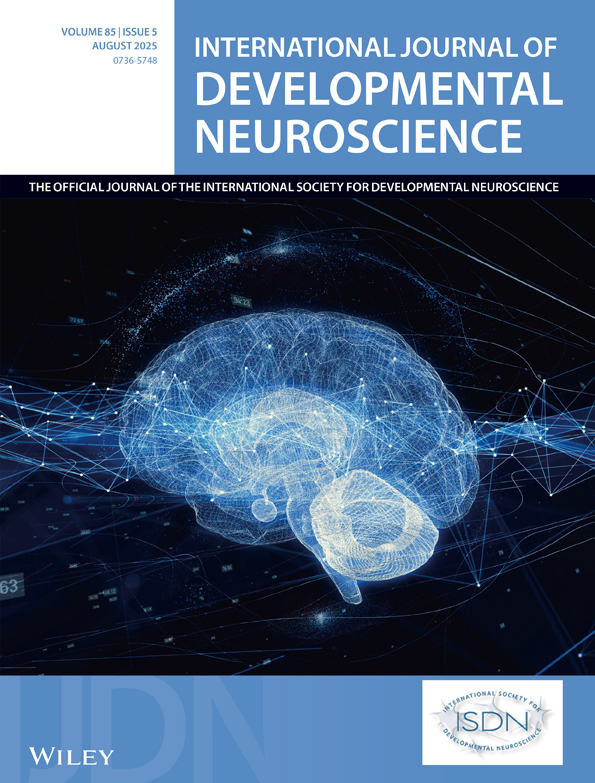Experimental maternal hyperpipecolatemia decreases DNA in the mouse brain
Abstract
Pipecolic acid represents the major metabolite of lysine in the CNS. This study aimed to mimic the known pathological condition of hyperpipecolatemia in human neonates by maintaining high and steady concentrations in the mouse brain both pre- and postnatally. Although histological observations did not reveal any abnormal findings in the brain, liver and kidney, the offsprings of mothers which were injected during pregnancy with 250 mg/kg PA presented a significant decrease in both cortical and whole brain DNA content. Protein, RNA and CNPase activity were not altered. The changes in DNA content are of particular interest since they demonstrate that a high and steady level of pipecolic acid, which is comparable to the level seen in human hyperpipecolatemic brain, can induce a neurotoxic effect in the fetal mouse brain. Mice injected with the same dose from day 1 to day 29 after birth did not show any change in DNA content in the cortex. These results suggest that the critical period from pipecolic acid neurotoxic effect is prenatal, probably due to a selective vulnerability of developing neurons to high levels of pipecolic acid.
The decrease in DNA concentration induced by maternal hyperpipecolatemia suggests a neurotoxic effect of pipecolic acid on cell proliferation during fetal development which could be related to the neuronal damage observed in the brain of hyperpipecolatemic neonates.




